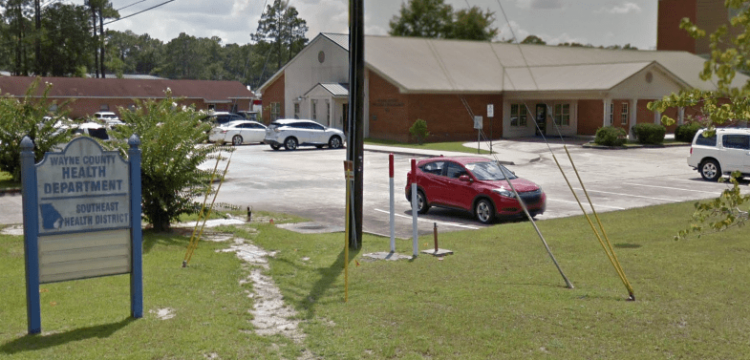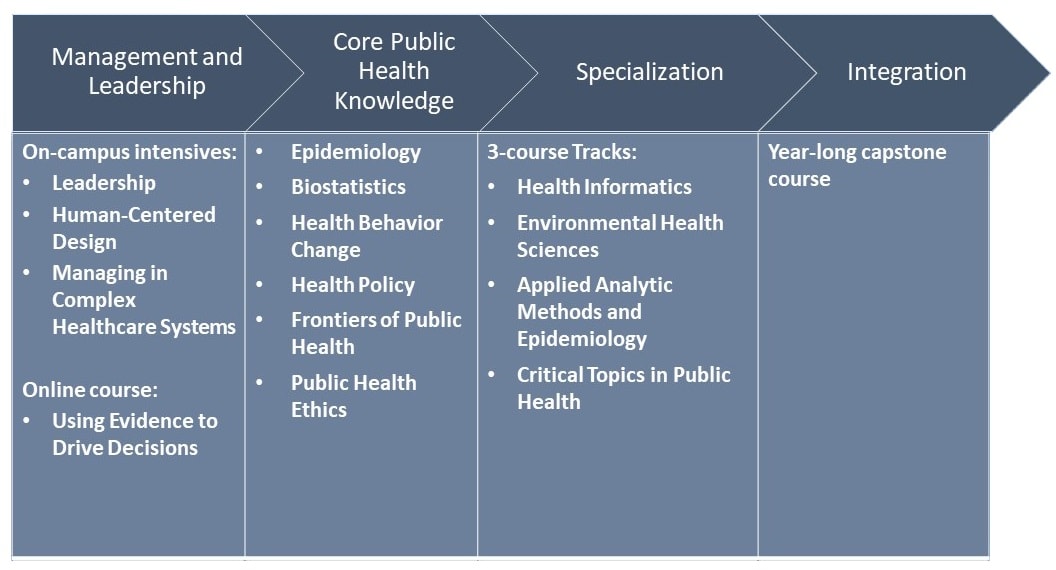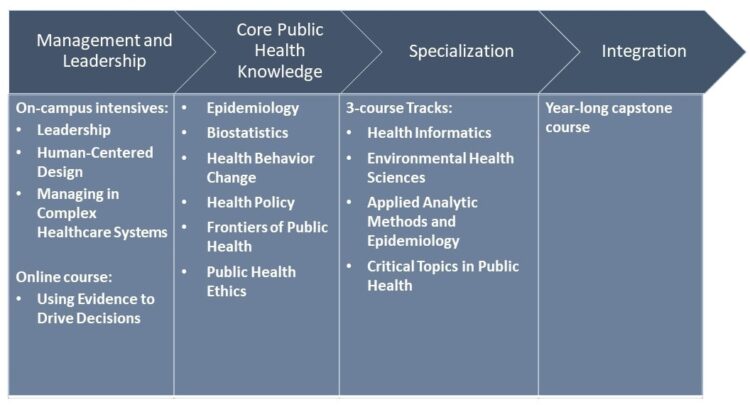
- Definition and Overview of Master’s Degree in Public Health (MPH)
- Career Opportunities for MPH Graduates
- Core Competencies and Skills Developed in MPH Programs
- Program Structure and Curriculum
- Accreditation and Certification
- Research and Capstone Projects
- Online and Distance Learning Options
- Admission Requirements and Application Process
Definition and Overview of Master’s Degree in Public Health (MPH)
A Master’s Degree in Public Health (MPH) is a postgraduate qualification that provides comprehensive knowledge and skills in public health principles and practices. It prepares individuals to address complex health challenges and improve the health outcomes of populations.
MPH programs offer various concentrations and specializations, such as:
Concentrations and Specializations
- Epidemiology: Focuses on the distribution and determinants of health-related events and diseases within populations.
- Biostatistics: Involves the application of statistical methods to public health data to analyze and interpret health information.
- Health Policy and Management: Prepares individuals to develop, implement, and evaluate health policies and programs.
- Environmental Health: Focuses on the impact of environmental factors on human health and the prevention of environmental health hazards.
- Global Health: Addresses health issues in international settings and promotes health equity worldwide.
Career Opportunities for MPH Graduates
The Master of Public Health (MPH) degree opens doors to a wide range of career paths in the healthcare and public health sectors. Graduates can pursue roles that focus on improving the health of communities, promoting healthy behaviors, and preventing and controlling diseases.
MPH graduates are highly sought after by employers in various settings, including government agencies, non-profit organizations, healthcare systems, and research institutions. The job responsibilities and salary expectations vary depending on the specific role and industry.
Government Agencies
Government agencies, such as the Centers for Disease Control and Prevention (CDC) and the World Health Organization (WHO), hire MPH graduates to work in areas such as:
- Disease surveillance and outbreak response
- Health policy development and implementation
- Environmental health and sanitation
Non-Profit Organizations
Non-profit organizations, such as the American Heart Association and the American Cancer Society, employ MPH graduates to:
- Conduct research on health-related issues
- Develop and implement health promotion programs
- Advocate for health policy changes
Healthcare Systems
Healthcare systems, such as hospitals and clinics, hire MPH graduates to:
- Manage population health programs
- Improve patient outcomes and reduce healthcare costs
- Conduct quality improvement initiatives
Research Institutions
Research institutions, such as universities and research centers, hire MPH graduates to:
- Conduct research on public health issues
- Develop and evaluate public health interventions
- Train future public health professionals
Successful MPH professionals in different fields include:
- Anthony Fauci, Director of the National Institute of Allergy and Infectious Diseases (NIAID)
- Deborah Birx, former White House Coronavirus Response Coordinator
- Raj Panjabi, CEO of Last Mile Health
Core Competencies and Skills Developed in MPH Programs

MPH programs equip graduates with essential competencies and skills that are crucial for success in the public health workforce. These include analytical, research, and communication skills, as well as a strong foundation in public health principles and practices.
Analytical Skills
MPH graduates develop strong analytical skills that enable them to interpret data, identify trends, and draw evidence-based conclusions. They learn to use statistical software and epidemiological methods to analyze public health data and evaluate the effectiveness of interventions.
Research Skills
MPH programs emphasize research skills, including designing and conducting research studies, collecting and analyzing data, and disseminating findings. Graduates gain experience in qualitative and quantitative research methods, which are essential for evaluating public health programs and policies.
Communication Skills
Effective communication is essential in public health. MPH graduates develop strong written and oral communication skills to convey complex information to diverse audiences, including policymakers, healthcare professionals, and the general public. They learn to write scientific reports, present research findings, and engage with stakeholders to promote public health initiatives.
Program Structure and Curriculum
MPH programs typically follow a structured curriculum that combines theoretical knowledge with practical experience. The duration of the program varies depending on the institution and the specific concentration chosen, but most programs can be completed within two years of full-time study or three to four years of part-time study.
Core courses in MPH programs typically cover foundational topics such as biostatistics, epidemiology, environmental health, and health policy. Students also have the opportunity to choose elective courses that align with their interests and career goals, such as global health, health promotion, or public health informatics.
Balance between Theoretical Knowledge and Practical Experience
MPH programs strike a balance between theoretical knowledge and practical experience. Students gain a strong foundation in the principles and theories of public health through coursework and research projects. They also participate in field experiences, internships, or practicums to apply their knowledge in real-world settings. This combination of theoretical and practical training prepares graduates to effectively address public health challenges.
Accreditation and Certification
Accreditation is crucial for MPH programs as it ensures they meet established standards and provide quality education. Accrediting bodies evaluate programs based on factors such as curriculum, faculty qualifications, resources, and student outcomes.
In the United States, the Council on Education for Public Health (CEPH) is the primary accrediting body for MPH programs. CEPH sets rigorous standards and conducts thorough reviews to ensure programs meet these standards.
Professional Certification
In addition to accreditation, MPH graduates may pursue professional certification to demonstrate their expertise in specific areas of public health. The National Board of Public Health Examiners (NBPHE) offers various certifications, including Certified Public Health (CPH) and Certified in Public Health Leadership (CPHL).
Professional certification provides recognition of advanced knowledge and skills, enhances career prospects, and promotes professional development.
Research and Capstone Projects
Research and capstone projects play a pivotal role in Master’s of Public Health (MPH) programs, providing students with hands-on experience in applying their knowledge and skills to address real-world public health challenges.
MPH students engage in a variety of research projects, ranging from quantitative studies to qualitative research and mixed methods approaches. These projects allow students to develop their analytical and problem-solving abilities, as well as their proficiency in data collection, analysis, and interpretation. Capstone projects, typically undertaken in the final year of the program, are larger-scale projects that require students to synthesize their knowledge and skills to address a specific public health issue.
Types of Research Projects
MPH students conduct research projects in various areas of public health, including:
– Epidemiology: Investigating the distribution and determinants of health-related states and events in populations.
– Biostatistics: Applying statistical methods to analyze health data and draw inferences about populations.
– Health policy and management: Examining the development, implementation, and evaluation of health policies and programs.
– Environmental health: Assessing and managing environmental factors that impact public health.
– Social and behavioral sciences: Exploring the social, behavioral, and cultural factors that influence health and well-being.
Online and Distance Learning Options
Online and distance learning options have become increasingly popular for MPH programs, providing greater flexibility and accessibility for students who may not be able to attend traditional on-campus programs. These programs typically offer the same curriculum and learning outcomes as traditional programs but are delivered through online platforms and video conferencing tools.
Advantages of Online MPH Programs
* Flexibility: Online MPH programs allow students to study at their own pace and on their own schedule, making it easier to balance work, family, and other commitments.
* Accessibility: Online programs are accessible to students from all over the world, regardless of geographic location.
* Lower costs: Online programs often have lower tuition costs than traditional programs, as they do not require the same overhead expenses for classroom space and faculty.
Disadvantages of Online MPH Programs
* Lack of face-to-face interaction: Online programs lack the face-to-face interaction that is a hallmark of traditional programs, which can make it more difficult to build relationships with classmates and faculty.
* Technical challenges: Online programs require students to have reliable internet access and technical skills, which can be a challenge for some students.
* Self-motivation: Online programs require a high level of self-motivation, as students are responsible for managing their own time and coursework.
Comparing Traditional and Online MPH Programs
Ultimately, the decision between a traditional and online MPH program depends on the individual student’s needs and preferences. Traditional programs offer a more immersive experience with face-to-face interaction, while online programs offer greater flexibility and accessibility. Both types of programs can provide students with the knowledge and skills they need to succeed in the field of public health.
Admission Requirements and Application Process
Admission to MPH programs typically requires a bachelor’s degree from an accredited institution. Relevant coursework in public health, health sciences, or related fields is often preferred. Additional requirements may include a minimum GPA, standardized test scores (e.g., GRE or GMAT), letters of recommendation, and a personal statement.
Application Process
The application process for MPH programs typically involves submitting an online application through the university’s website. Deadlines vary depending on the program and institution, so it’s crucial to check individual program websites for specific information. Supporting materials usually include transcripts, standardized test scores, letters of recommendation, and a personal statement.
Tips for a Strong Application
To prepare a competitive application, focus on highlighting relevant experience and qualifications. Emphasize coursework, research, or work experience related to public health. Craft a personal statement that clearly articulates your interest in public health and explains how your skills and experience align with the program’s objectives. Strong letters of recommendation from individuals familiar with your academic or professional abilities can also enhance your application.





